Unless you have been living under a bush these last few months, you cannot fail to have heard of the rise AI imaging. It’s everywhere we look, articles pronouncing how amazing it is, videos announcing the death of photography, and even lawsuits over the validity of an AI image’s copyright.
Like all new technologies, AI is here to stay. Like all technologies, it will impact those that go before it, but will it be the death of photography? Personally, I don’t think so, and I will come on to that later, but for now let’s take a look at what exactly an AI image is.
What Is An AI Image?
An AI image, in its simplest form, is one that has been created in a computer using algorithms rather than an image captured in camera. However, it’s a little deeper than that. The rise of the AI image has been rapid and has become very accessible to the average non-photographer.
These days you can simply go to a website, type in what you want, and the AI will create that image for you. The limit is your own imagination. For example, I could type “old woman riding an elephant down a busy city street at sunset.” Scarily the AI algorithms will come up with a very passable image that represents that sentence. It won’t be perfect by any means, but we are just at the beginning of the rise of the AI image. It’s scary to think where we will be in 5 years' time. But the future is for later. Let’s look at how the AI image is created and some of the controversies it’s causing.

How Is An A.I. Image Created
Well, AI is not actually so intelligent that it can conjure an image out of thin air. In the future, it may well do, but for now, it has to use references. The problem is that those references are images that are already online. Doesn't matter where; if they can be seen somewhere on the Internet, the AI programs can use them. We will come to the ethical, moral, and legal aspects of that in a moment.
So when I typed in “old woman riding an elephant down a busy city street at sunset.” the AI set to work. It scraped the Internet for all the elements I mentioned in that sentence, found ones that would work well together, and built a composite image from them. It’s incredibly clever stuff but also treading a moral and legal tightrope.
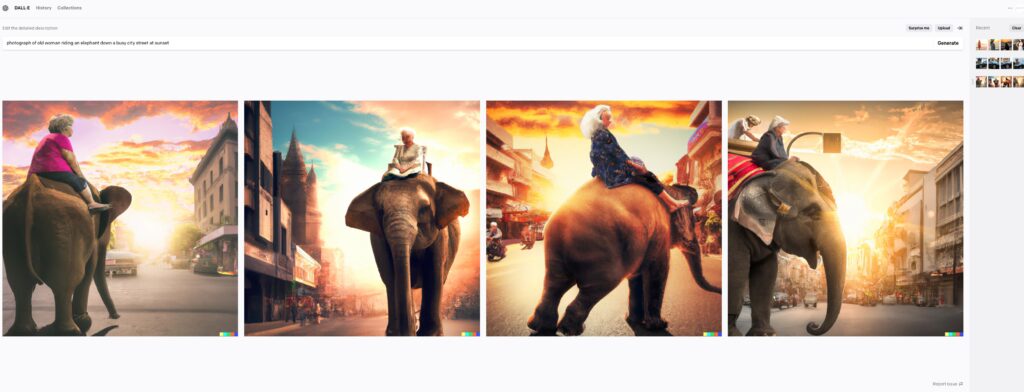
At the moment, the rise of the A.I. image makes the assumption that all images online are free to use. It makes this assumption because the final work is derivative and so far removed from the original work as to be an original image in its own right, albeit AI-generated images.
Like technologies before it, the law has yet to catch up with the legalities of ai-generated images from text. It will have to, and undoubtedly will. A classic recent example of this was the rise of drone photography. In the beginning, it was a veritable free-for-all, now it’s pretty well-regulated. However, like drone photography, there will be a minority of people that will abuse the rules.
Potential Issues And Controversies With A.I. Generated Images
The potential for ai-generated art really is limitless and that raises some fairly major potential issues. One major issue would be the distortion of photojournalism. We all know that non-journalistic entities and social media are a haven for images purporting to be one thing yet were shot at a different time and location. The rise of the AI image has the potential to push those boundaries even further and with ease.

Unscrupulous entities will be able to simply type in what they want to convey then post those ai-generated images to social media sites, to sway public opinion.
Another, more personal abuse of the power of AI could be in deep faking people in compromising situations. Deep Fake porn is a real thing that affects not only celebrities but also the average person. AI generated images have the potential to exploit a person’s social media accounts and create realistic images of them in lewd situations.
As AI scrapes the internet, it's possible that many of its generated images will not be so derivative as to escape copyright infringement. This will be especially so in very niche sections of photography where fewer images are available.

Another recent and worrying development has been the use of AI to remove watermarks from real photos. This opens up a whole new can of worms especially in regard to stock agencies, protecting their contributor's work.
It’s Not All Doom And Gloom!
Will the rise of the AI image kill off photography? In my opinion, no. It’s another tool, another technology used to create images. Whilst it will, in the future, be able to create incredibly realistic-looking images, they will lack one vital element. That vital element is what photography was created for and was best described by the great Henri Cartier-Bresson in what he called the “decisive moment”
Real photography will always be defined by that decisive moment. The moment the sun sets behind a stunning landscape, the moment an enigmatic smile appears on a model’s face, the moment a brightly dressed person steps out of the shade on a monochromatic-looking street. These could all be generated by AI, but because in a real photo they actually happened in a real place and at a point in time, they will have infinitely more value than any AI generated image.
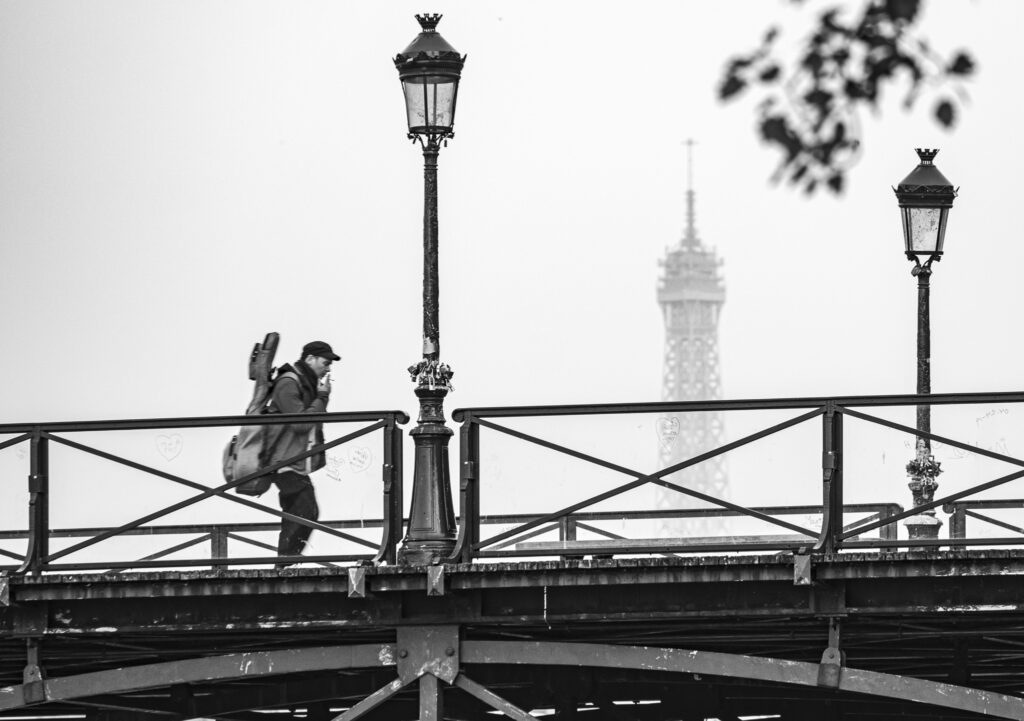
There is also the creative aspect of going out, waiting for that decisive moment in the perfect location. Those of us that do photography will never lose that. Sitting at home typing into an ai art generator may be creative in the words that you type, but it is not get up, get out and shoot creatively, with all the positive benefits that brings.
Will the rise of the AI Image kill photography? No, but it will change the way we take photos and it will need a law change to protect photography. Like all advances in photography, we will adapt to this new technology, learn to embrace it and fold it into our everyday workflows. I can see myself using AI as an inspiration to take images. I can type in a vision that I might have, allow AI to create a version of that vision, then go out and create it in the real world. That’s a powerful tool to have.

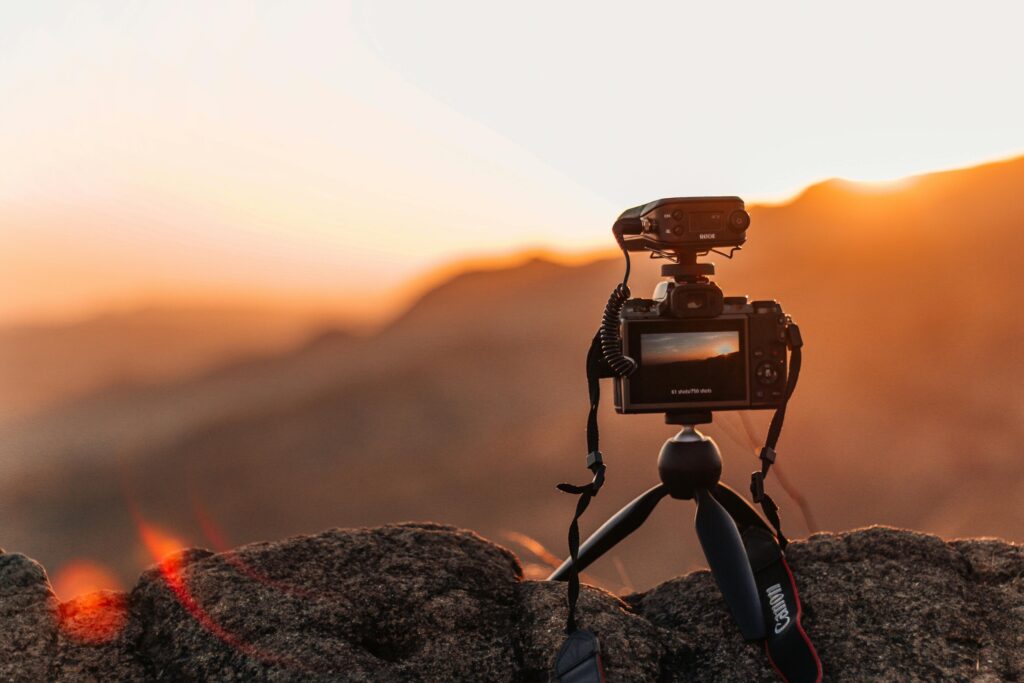
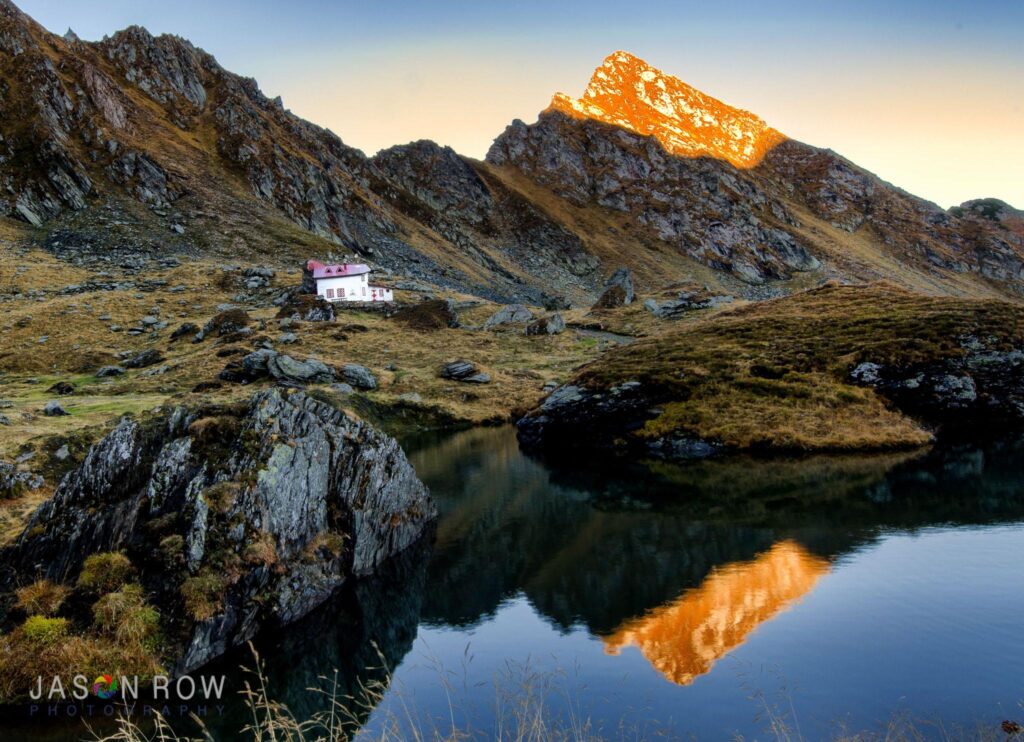
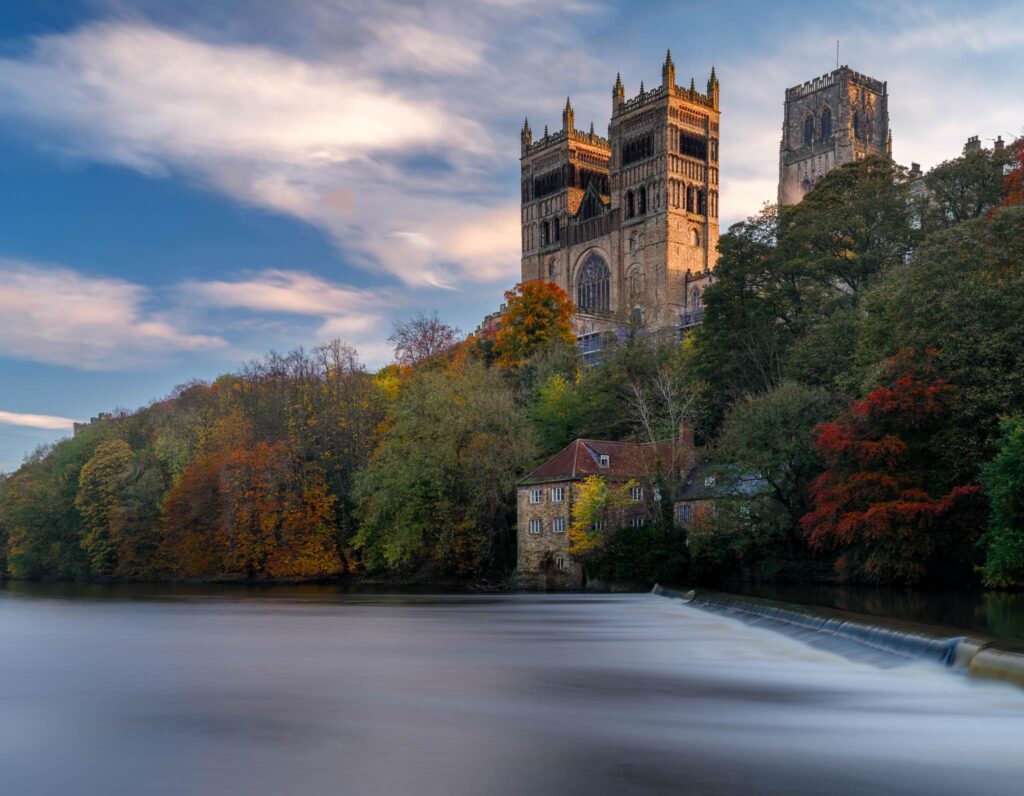

5 Comments
This could kill on line gallery competitions and what about websites?
There’ll always be those who feel threatened by change and sure there’ll be those who use AI for nefarious purposes, very similar to the way the internet has been misused for scams etc. I think the impact on photography will actually be quite minute compared to the impact on society as a whole – at the moment it’s very difficult for people to actually know what is actually true as opposed the ‘truth’ as told by Prince Harry and Megan Markle, certain politicians, ‘influencers’ and sportspeople.
You identify law changes, but to who, what and where – there’s not even universal agreement in global law as to copyright, gender, banking statutes, global warming, right to privacy or a thousand and one things – don’t hold your breath for a universal approach to AI malpractice.
AI for art is just another tool. I welcome new tools, but understand that it will change things drastically. Digital cameras and computers did the same thing. People who worked with chemicals and darkrooms are nearly all gone. People who use to operate AB Dick multilingual printers are gone because of computers and printers. Graphic Artist will take a beating from AI and their need and numbers will be reduced.
The problem I have is with the people who make the databases include images off the web without peoples permission. US law protect copyright, but fair use laws give people the ability to use images and text copyrighted material for education, non profit use and derivative works to help expand art and allow artists to expand on what already exists. But these are humans, not computers, and these AI companys will crush art, not expand it which was the intent of fair use laws. The music industry went through the same thing. MC Hammer used a sampled drum riff for “Can’t Touch This”. Information Society took samples from Star Trek tv show and use them in a song “I want to know, what you’re thinking. This was legal at the time because they were snipet samples and the new song was derivative but because of the lawsuits and the 1991 U.S. District Court case Grand Upright Music, Ltd. v. Warner Bros. Records, Inc., Sampling ended. You cannot take even a tiny snipet of audio from a cd and create a derivative song. Probably because big record companies lawyers did this. Taking peoples images off the internet without permission is theft, just like it is for music and the courts should uphold the rights of the creator just as it did in the music industry. My only fear of AI pertaining to photography, because there are no big music company lawyers involved. The courts will not rule against the thieves who steal copyrighted images off the web and put them in a database feed them to the AI. We should not fear the technology, we should fear our governments that will not protect the rights of the individual creators. If they want to use these images in the database, they have to pay the creator to use them. I posted this link before on lightstalking. AI Is Probably Using Your Images and It’s Not Easy to Opt Out https://www.vice.com/en/article/3ad58k/ai-is-probably-using-your-images-and-its-not-easy-to-opt-out
In the article there are people who recognize their images. They are not taking snipet. In fact it would seem that AI purposely introduces errors, like 6 fingers, or one eye smaller than the other so people do not recognize their images or AI companies can claim this is a derivative work. I say that these companies are knowingly pulling images of the internet and trying to get away with it, using fair use laws to justify their theft. Creators should band together and demand government protect photographers, just like theu protected music creators from using any part of their creations being use as “derivative” works by AI without permission or compensation. One other problem is that many people checked the box (as in the case of Adobe) on photo sharing websites that say you give them a non exclusive irrevokable license to their images that is relicensable to anyone they want to license it to. Including AI database creators. People don’t read the TOS on these sites (including google and facebook and many others including a place that I use to post images photofocus.com and when they changed their TOS, I told them they could resell our images and it was wrong, they said they wouldn’t sell them and ignored me but their “legaleeze” absolutely said they could do this, I consulted online lawyers who verified this ) and people just check the TOS box and hand their images over to these websites. I think there is a lot of things going on to make sure our images go into a database for AI and I think it is immoral and should be made illegal, just like the music industry.
Screw AI Images. Pardon my wording. But what I have to say I say with deep feelings. We , as photographers, must stay true to our craft. If we can’t, then we are no longer photographers. We cannot consider ourselves photographers. We are now plagerizers. Passing off someone else’s work as our own.
I have been a photographer for over 10 years. I belong to various camera clubs, was saddened to see my local club fall victim to Coved. I have traveled to various states with my sister for photo workshops , attended meetups and enjoyed some of the best speakers on various photography subjects.. Joe McNally, Jay Flemming ,Tony Sweet are but a few of them.
I’m thrilled when something unusual happens on one of the trips. Why ? Because I’m never in the right place, at the right time. Only pros are. They can afford it. But It has happened to me but twice.
. Whenever I look over a professional photographers work, I can’t help but notice that [example] a particular sunset looks fantastic because the guy had great clouds that day and a flock of birds flew right in front of the sun and the clouds were very low creating low cover. I think you get my gist. So when I get a wow photo, I’m really happy and I can call it my own. I don’t need or want a generated photo. I want it to be my own work , my own editing, put my own watermark on it. I might not be great at editing, but i do my darndist. If I have a problem, I’ll pick up the phone and call a fellow photo nut. Most of us, if not all, are not perfect. We are not God. We can’t call up perfect weather for a particular pic.
I think you can see where I’m coming from.
So the day photographers put aside planning their next trip, making use of their app to plot where the sun will rise or set, checking where lakes or bridges are located and knowing how long it takes to get to a certain location for the best sunrise /sunset, then we better hang up our cameras.
I’m sure we all love the outdoors. What better way to get our creative juices flowing.
Love the camera, love the outdoors, love photography.
Sandy C Carr
Bravo! Photographers should protect our images. AI could be used responsibly. Hell, if we could go to Mars, on land a probe on a moving comet, we can control our computers. This isn’t the Matrix. The machines haven’t conquered our world. Not yet!